The hijab police are back on the streets after nearly a year, but protesters are emboldened.
www.bbc.com
Iran protests: Return of morality police met by defiance
Share
IMAGE SOURCE,REUTERS
Image caption,
The morality police were withdrawn after protests erupted last year
By Mehrzad Kohanrouz
BBC World Service
As the lights dimmed at a cultural festival in the Iranian capital, Tehran, earlier this month, women in the audience were defiantly dancing, singing and clapping along to the music at the landmark Milad Tower.
They were also waving their hijabs (headscarves) in the air and that, according to Iran's interpretation of Islamic law, is crossing a major line.
The hijab is a powerful political symbol in the Islamic republic, a bedrock of the ideology of the country's clerical establishment.
Women who flout the mandatory dress code can face severe punishment, but since nationwide protests began in September, many younger Iranians have been openly questioning Iran's strict hijab regulations, sometimes in public displays of civil disobedience.
Patrols by the country's morality police - whose job it is to enforce the hijab regulations - had been paused since the protests erupted following the death in custody of 22-year-old Kurdish Iranian woman Mahsa Amini, who had been arrested for allegedly breaking the strict hijab rules.
But Iran has
recently restored the morality police patrols to the streets as a "countermeasure against hijab negligence", according to a police spokesperson.
It is a move which is likely to lead to further confrontation between the authorities and protesters.
"This is a clear and explicit declaration of war against the people" one Iranian respondent, whose name is being withheld for their own safety, told BBC Persian's Instagram channel.
In a defiant voice, they said they hoped this time round "people will make the most of the regime's repeated mistakes and overthrow the whole system".
IMAGE SOURCE,GETTY IMAGES
Image caption,
Women set fire to their headscarves in protest at being forced to wear them
While the government insists that the decision to revive the morality police has been based on a popular demand, it has drawn much criticism.
Iran's former president, Mohammad Khatami, has said that the reappearance of the morality vans is a self-destructive move by the government which will further increase tensions in society and could lead to "social implosion".
A former official, who asked not to be identified, told Reuters that "wrong decisions may have painful consequences for the establishment. People cannot take more pressure. If it continues, we will witness street protests again".
Confrontations have already occurred between the police and bystanders over the enforcement of the regulations.
In a video obtained by the BBC thought to have been filmed on 16 July, people in the northern city of Rasht are seen stopping the police from arresting three girls for violating the dress code.
If the authorities are stepping up their policing of the regulations, those that oppose the compulsory hijab seem intent to continue their resistance.
This month, the trial of one of the country's foremost female political prisoners, Sepideh Gholian, did not take place because she refused to wear a hijab in the court.
The 29-year-old human rights activist has been in jail for the past six years for reporting on an industrial dispute in south-west Iran.
She was released earlier this year having served her sentence, but was promptly arrested and imprisoned again for shouting slogans against Iran's Supreme Leader, Ayatollah Ali Khamenei, outside the notorious Evin prison in Tehran.
"We seem to be at a stalemate," says Mehrzad Boroujerdi, dean of the College of Arts, Sciences, and Education at Missouri University of Science and Technology and co-author of a book on the country's politics, Postrevolutionary Iran.
He says the battle of narratives for the future of Iran continues.
"The opposition has not been able to overthrow the clerical regime and the state has been unable to win over the citizenry due to its brutally repressive measures and unwillingness to address any of the demands of the citizenry."
IMAGE SOURCE,BAYGAN/BOLUKAT/AMIRALLISJ
Image caption,
Actresses Afsaneh Baygan (L), Leila Bolukat (C) and Azadeh Samadi were punished for defying hijab regulations
These measures include some unconventional punishments for those who defy the hijab regulations.
On one occasion, a court sentenced a woman who allegedly violated the hijab rules to washing corpses - a religious practice performed in a mortuary before burial - for a month.
Similarly, two prominent female film celebrities, Afsaneh Baygan and Azadeh Samadi, were sentenced to compulsory psychotherapy courses each week as a form of treatment.
A third, Leila Bolukat, received a one-year prison sentence for "removing the hijab" and "disturbing the public mind" after she appeared wearing a hat, instead of a headscarf, at a public event.
Amid a furious backlash from critics of the religious establishment, newspapers associated with the government rushed to defend the rulings, arguing the celebrities would be "cured" through these measures.
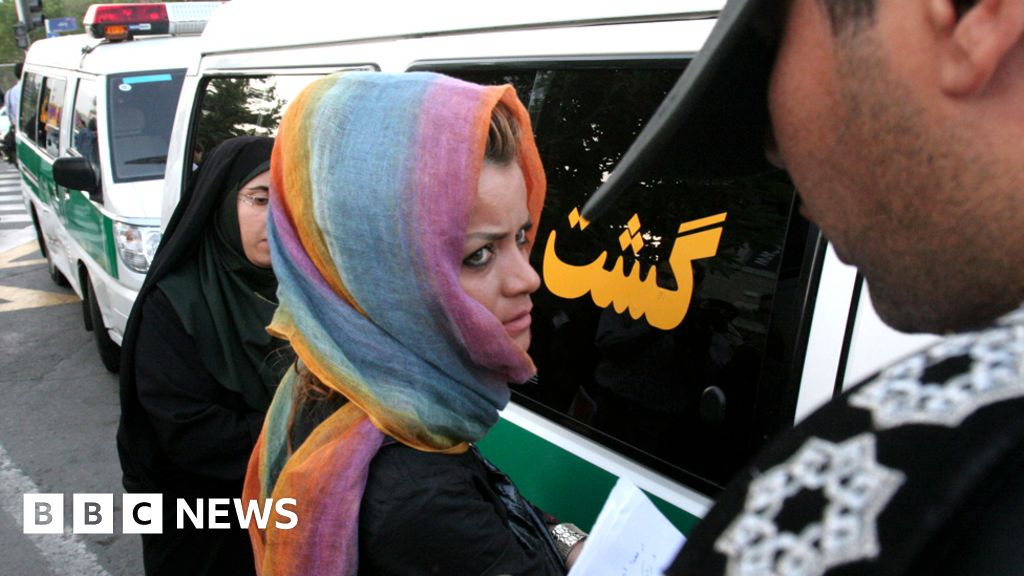
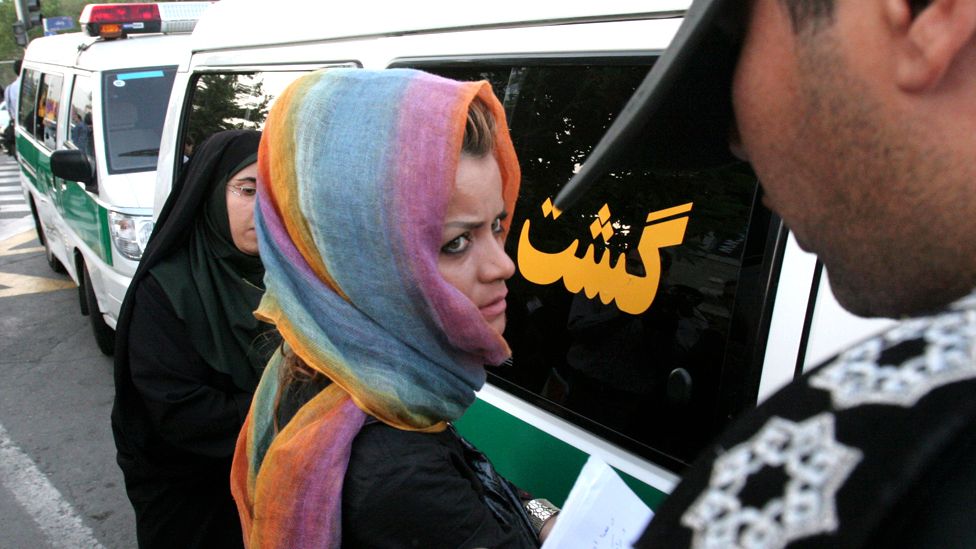
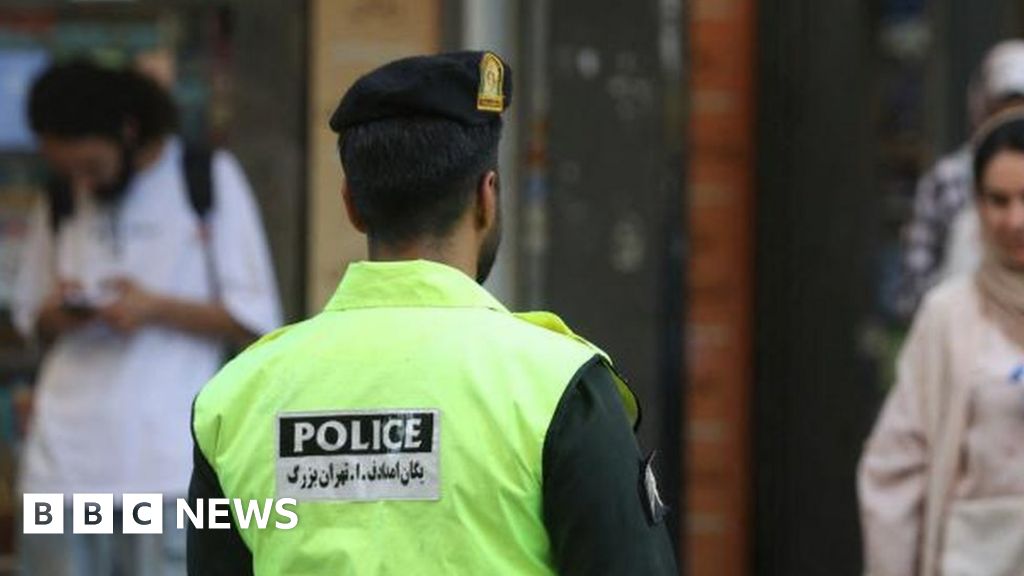
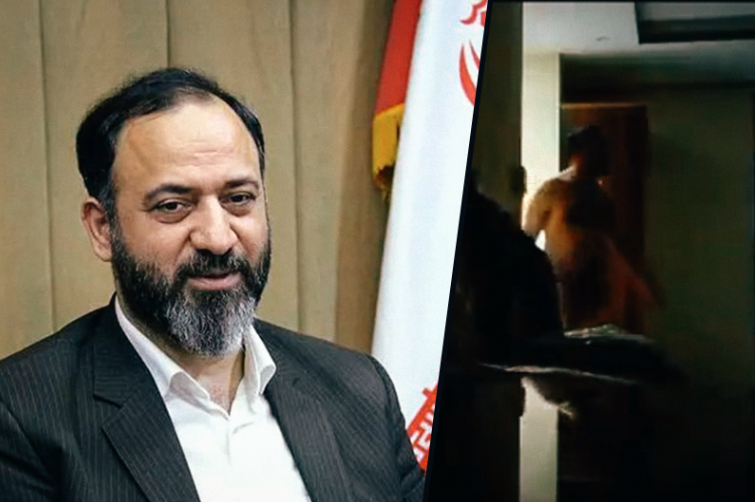
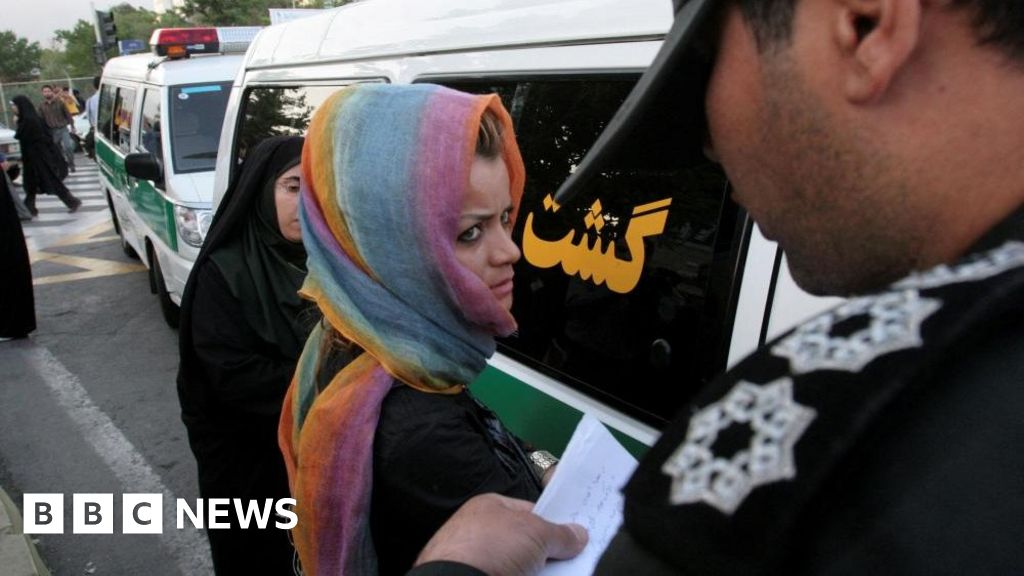
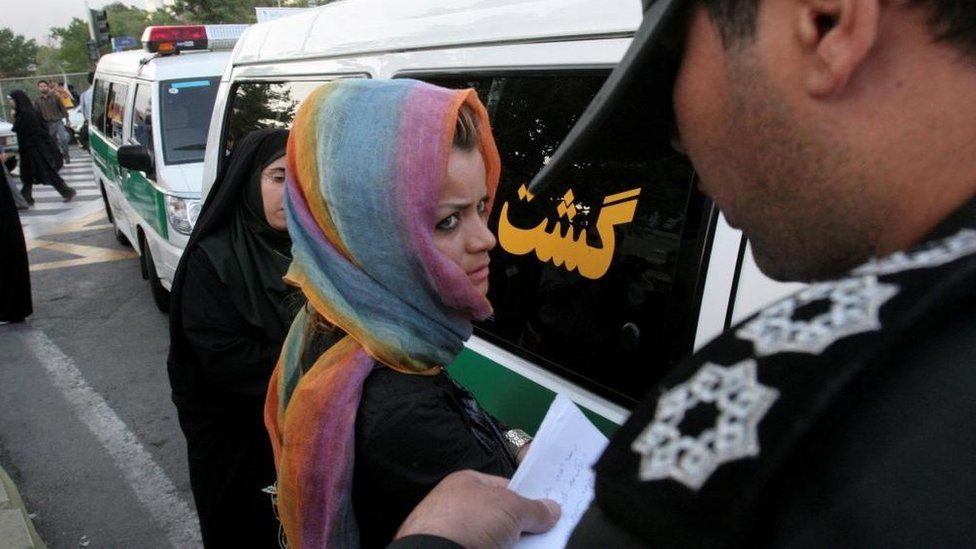
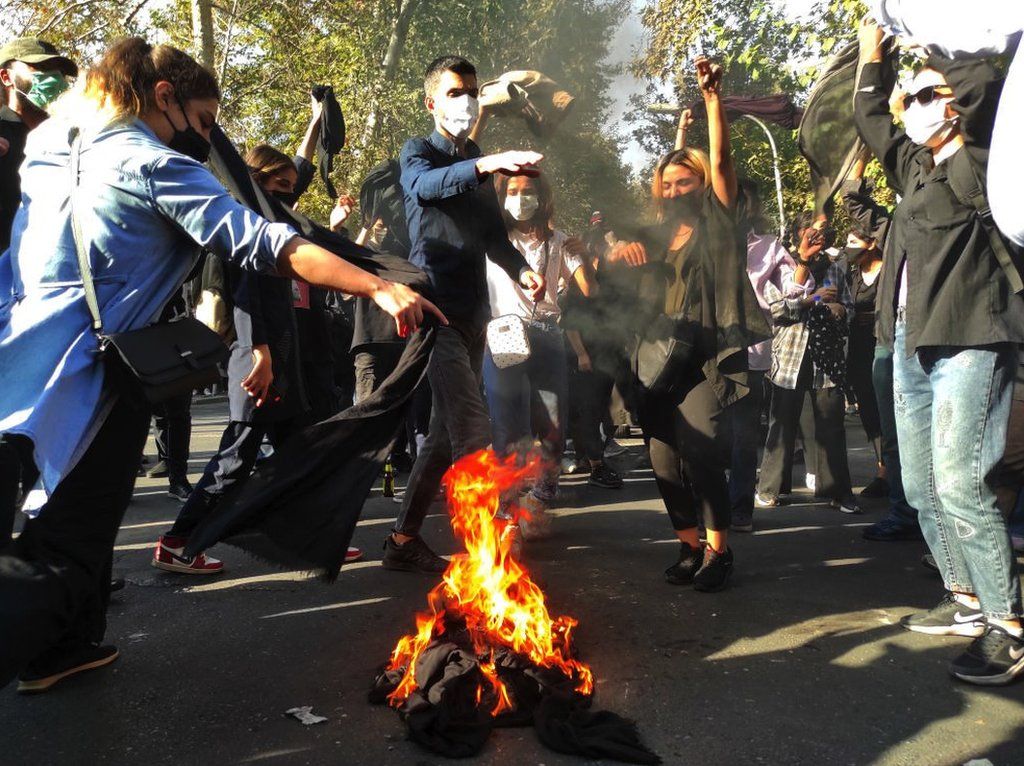

)





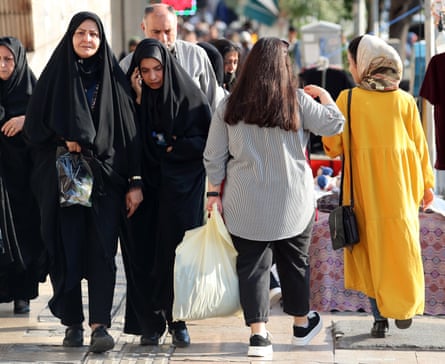
 ‘There’s no other option but to fight’: Iranian women defiant as ‘morality police’ return
‘There’s no other option but to fight’: Iranian women defiant as ‘morality police’ return